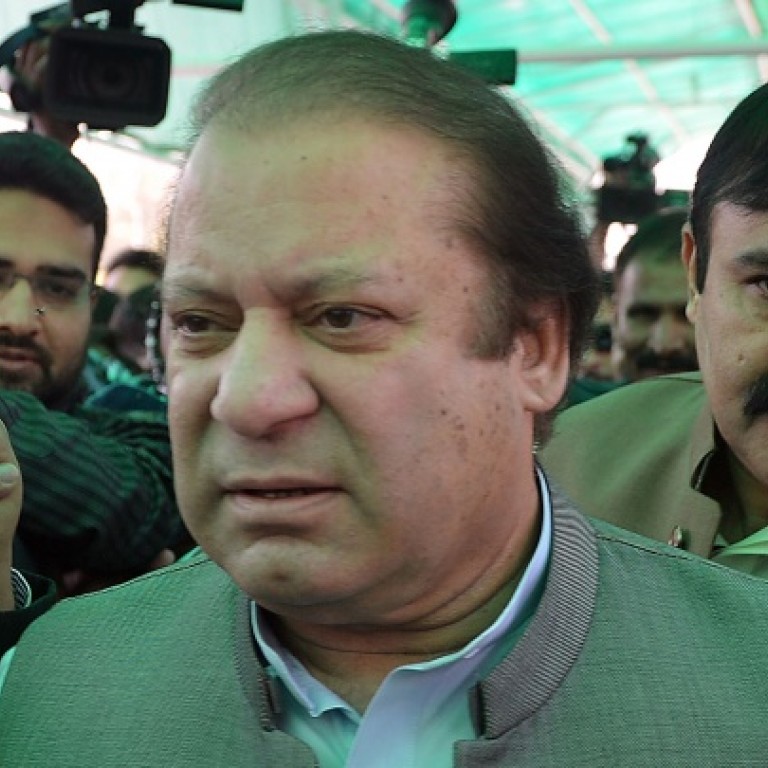
New Pakistan PM Sharif calls for end to US drone strikes
Premier Sharif endorsed for an unprecedented third term in office
Pakistan’s new Prime Minister Nawaz Sharif called Wednesday for an end to US drone strikes in the country’s northwest, after lawmakers endorsed him for an unprecedented third term in office.
Some 13 years after he was deposed in a coup and sent into exile, the 63-year-old was formally chosen by a vote in the National Assembly and will take the oath from President Asif Ali Zardari later in the day.
The country faces a daunting array of problems from crippling power cuts to Taliban militancy, and the new prime minister said citizens should be in no doubt about the challenges that lay ahead.
Sharif has advocated peace talks with the Taliban, though the all-powerful military has voiced deep scepticism about the idea of doing deals with the militants.
He publicly criticised the drone strike that killed Taliban deputy Waliur Rehman last week, echoing long-held Pakistani complaints that the US campaign violates national sovereignty.
On Wednesday Sharif used his first speech as PM to reiterate his concerns.
“We respect the sovereignty of others and they should also respect our sovereignty and independence. This campaign should come to an end,” he said, calling for a comprehensive strategy to root out extremism.
Missile strikes by unmanned US aircraft have been very unpopular in Pakistan, but Washington views them as a vital tool in the fight against Taliban and Al-Qaeda militants holed up in Pakistan’s lawless tribal areas.
The enormity of the challenges that he faces and that confront Pakistan today will likely make him change his style of politics even if he does not want to
Ties with Washington will be a key part of Sharif’s tenure, particularly as NATO withdraws the bulk of its forces from neighbouring Afghanistan by the end of next year after more than 12 years of war.
Sharif has said Pakistan will cooperate with NATO as it pulls out, but warned that Washington must take Islamabad’s concerns about drone strikes seriously.
In Wednesday’s National Assembly session, Sharif took 244 votes -- beating his nearest rival Amin Faheem, of the Pakistan People’s Party (PPP) who took 42 and Javed Hashmi of Imran Khan’s Pakistan Tehreek-e-Insaaf party with 31.
The new premier has said tackling energy shortages, which rob the economy of up to four per cent of GDP, will be a priority and he has vowed to build new power plants.
Years of mismanagement, under-investment and corruption in the power sector have led to blackouts of up to 20 hours a day in the blistering heat of summer, when temperatures reach up to 50 Celsius (122 Fahrenheit).
Analyst Imtiaz Gul said he expected a sober, conciliatory approach to government from Sharif.
“The enormity of the challenges that he faces and that confront Pakistan today will likely make him change his style of politics even if he does not want to,” Gul told AFP.
Sharif’s Pakistan Muslim League-N scored a comfortable win in the May 11 general election as Zardari’s PPP was routed, blamed by voters for five years which saw the hated power shortages worsen and militancy continue almost unabated.
But the very fact that the PPP completed its five-year term was seen as important in a country that has suffered three coups and been ruled for more than half of its 65-year history by the military.
